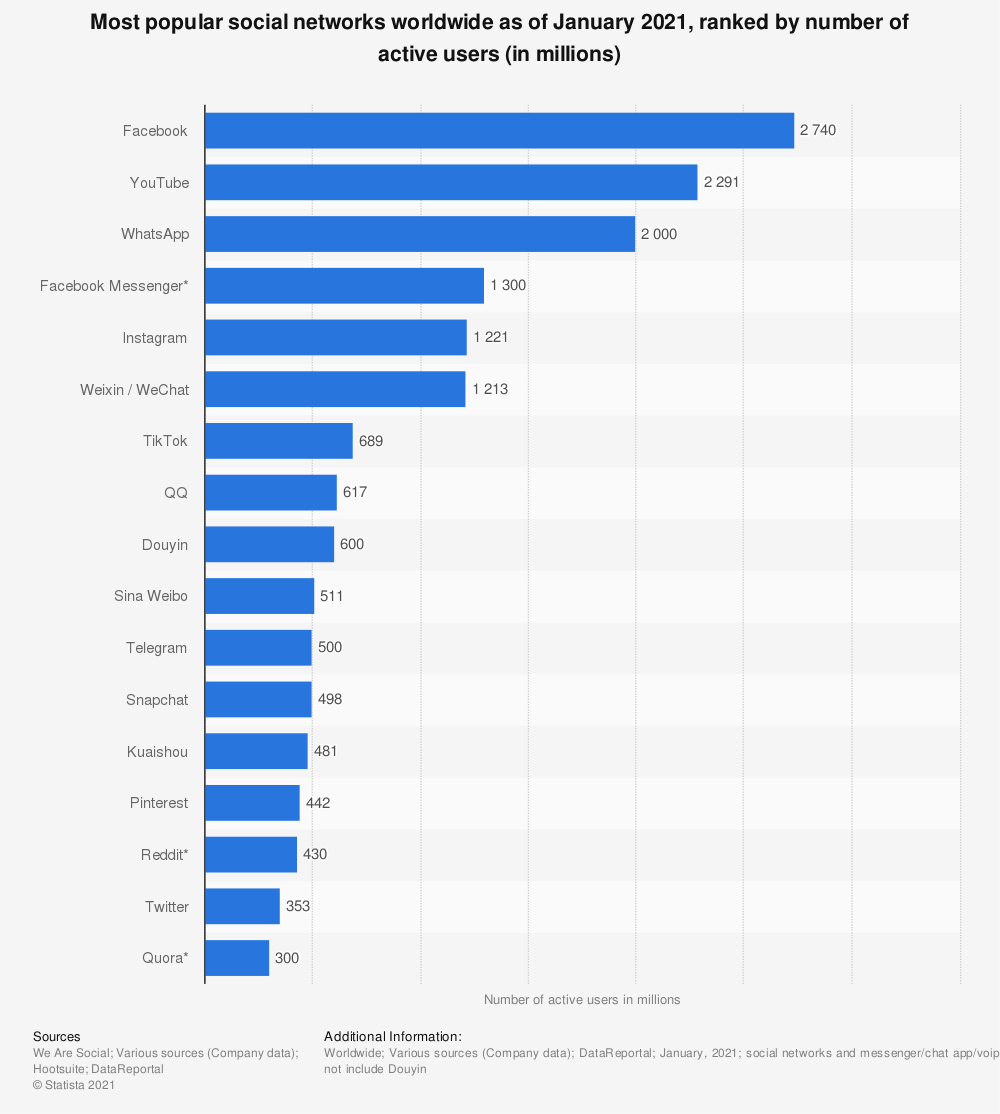Social media is a great tool for growing SaaS and tech brands. It's like a double-edged sword; if properly wielded, you can use it to execute both inbound and outbound marketing campaigns that pull in qualified prospects.
People like to think that social media is just a place to have fun and connect with other people. That's certainly one benefit, but it's not all there is. Platforms like Facebook have helped family members to reunite after decades of separation, but businesses have also used them to generate millions of dollars in revenue.
For example, Airbnb, the vacation rental company that disrupted the hospitality industry, uses social media as a major marketing tool. Because vacations and rentals are highly visual, the company uses Instagram the most for its social media campaigns. This has led to user-generated content that increased their brand awareness and got more people to use the product. In January of 2015, for example, the company launched a social media campaign hashtagged #OneLessStranger. The challenge was simple: show kindness to a stranger and share it using the hashtag.
The #OneLessStranger campaign went viral. Within just three weeks, over 3 million people had engaged with the campaign by using the hashtag or talking about it. Through the campaign, Airbnb was able to create more brand advocacy for themselves and push their company mission forward. That's the power of social media.
Not all tech companies will become as popular on social media as Airbnb or the other giants with six or seven-figure followings, but all businesses can leverage social media to crush their sales and marketing goals more easily.
Let's discuss some of the top benefits of social media marketing for SaaS and tech companies, as well as how you too can make the most of it.
Why Tech Brands Need a Social Media Presence
From the Airbnb example above, we've seen how having a social media strategy can increase your brand awareness and turn loyal customers into brand advocates. Below, we will consider some other reasons why you should be intentional about your company's social media marketing.
Increase Touchpoints and Close Deals Faster
According to a study conducted by IDG, 84 percent of marketing managers, veeps, and other C-level executives are influenced by social media when making purchasing decisions. It's not uncommon to see people asking their social media networks to recommend tools and solutions that could solve their problems. People post questions like this every day:

When your brand has an active social media presence, it becomes easy for others who have experienced your offerings to recommend you to their network. And this way, you get to shorten the sales cycle, which often includes six to eight touchpoints for most brands in competitive markets.
Authority Building
Nothing drives content marketing like perceived authority. People want to know that you're able to solve their problems as you promised you could. When they come across your products or services on the internet, they unconsciously search for a reason to believe you. It's your job to give them reasons to choose you and social media is a great way to do that.
At least 55 percent of executives check social media before going ahead with a purchase. The numbers are even higher for B2C brands. So how can your business pivot to benefit from this huge sales opportunity? Engage regularly with the community (post, like, and share content). Also, share case studies and testimonials from previous clients or customers.
But there's a caveat: don't be salesly. People don't typically come on social media to buy stuff; they come to connect, relax, and have fun. When people are in this mood, they don't respond well to promotional posts. Follow the 80/20 rule for social media. Eighty percent of your content should be social — fun and engaging — and only 20 percent of it should be promotional.
Social Customer Care
Social customer care means using social media as a tool for addressing complaints, questions, and requests for guidance. Customer care has evolved from the days when the only option was calling the customer service landline. Today, there are messaging services, chatbots, and even self-knowledge bases on websites. But the closest thing to phone calls is social media interaction between brands and customers. Email is an option, but more and more people — particularly the millennials and Gen Z — prefer to sort their issues over social media than through emails. A curious study conducted by Provide Support suggests that responding to social media complaints increases brand advocacy by 25 percent.
Showcasing Company Culture
You may have the best company culture in the world, but not many people outside your company will know about it unless you show them. Your social media platform is a good place to showcase your culture through visuals and texts. This investment will be useful in creating UGC and also when employing talent. Remember, company culture is one of the biggest motivations and bragging points for staff members.
Are these benefits worth the investment?
Yes, you say? Let's proceed to the final section of this post.
Which Social Media Platform Is Best for SaaS and Tech Companies?
Based on the number of active users, the major options available are Facebook, Instagram, Twitter, LinkedIn, and YouTube. There are also niche communities like Growth Hackers and question and answer platforms like Quora and Reddit.
Having multiple options can be a curse. When you don't know what platform to begin with, you may end up either choosing one that's unfit for your business model or using multiple platforms at a time. Both will waste your energy and resources.
Here are some guidelines to help you choose:
-
For the sake of uniformity, use the same name when creating social media handles. Preferably, use your business or website name. If that won't work, just make sure you aren't using one handle on Twitter and a different one on Facebook; you will confuse people.
-
Draw ideas from your content marketing strategy. Are you poised towards creating visual content? Then Instagram would be a good option. Is your content more lengthy videos? Try YouTube. If your goal is to connect with professionals, then LinkedIn and Twitter will help you do that faster. Facebook has additional pros, but it's the best option if you plan on going heavy with social ads. This is due to its large user base, wide coverage, and sophisticated ad options.
-
If your business model frequently needs short-term promotions for events like webinar invitations, then consider Twitter, LinkedIn, and Facebook in that order. Your posts can easily be shared and people outside your network are notified when someone in your network that they know likes a post on these platforms.
Where Do You Go from Here?
Let social media complete your inbound marketing efforts. The blog on your website, your podcast, or any other content marketing channel you use should pour into your social media platforms and vice versa.
Don't forget that social media is exactly what it sounds like: platforms for people to socialize, so don't chase them from you with promotional posts. Apply the 80/20 rule to your social media strategy: 80 percent social content and just 20 percent (or less) promotional posts.







